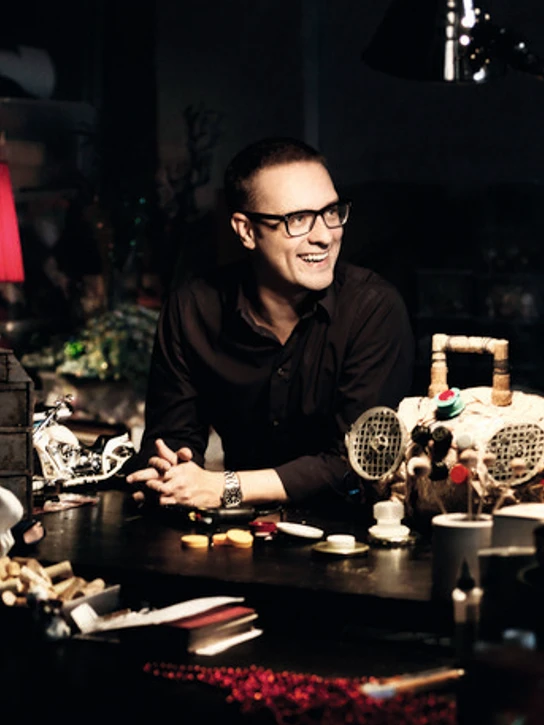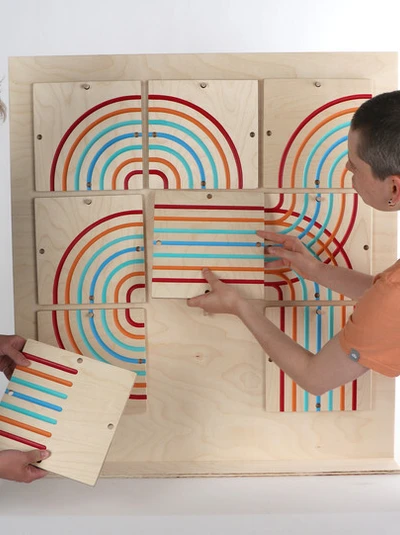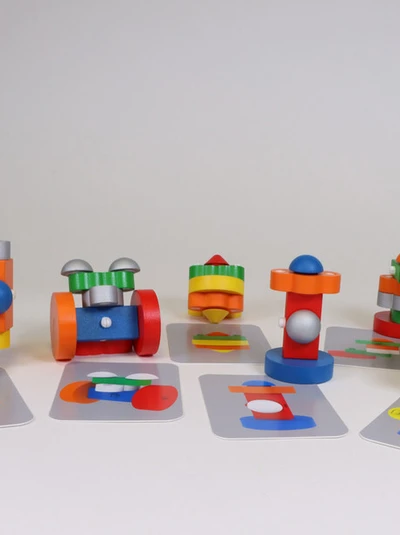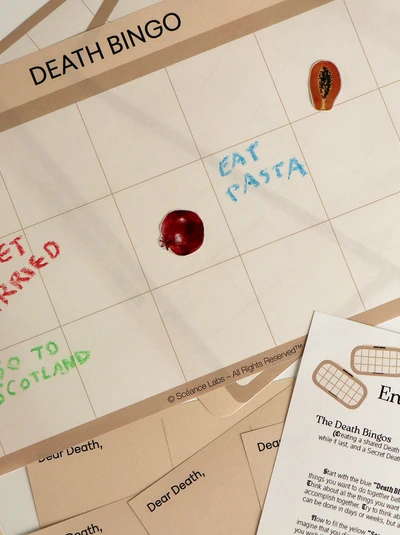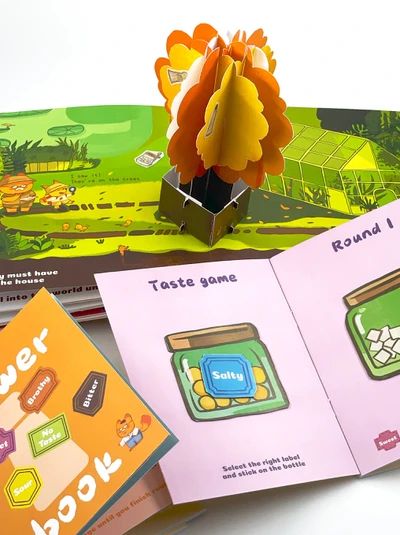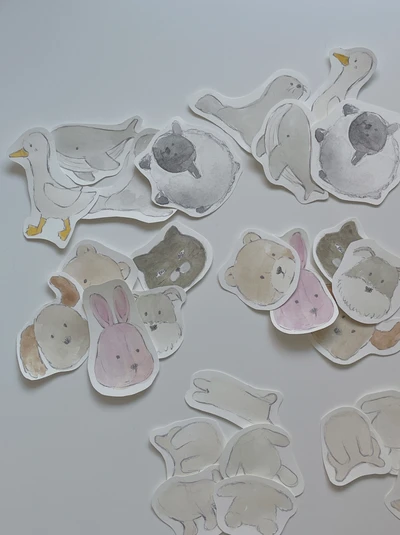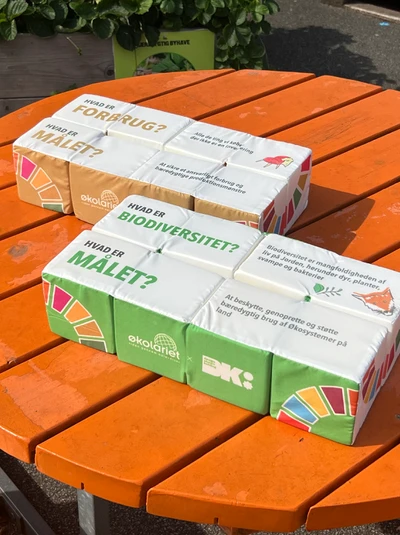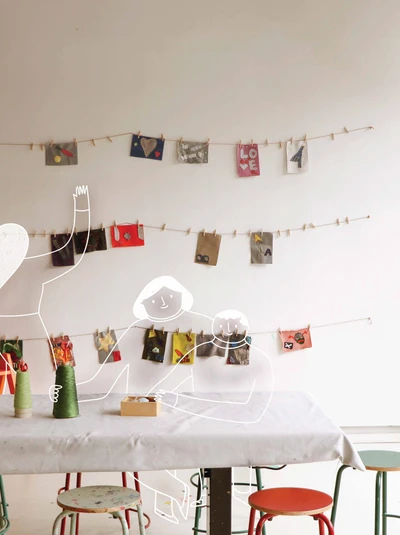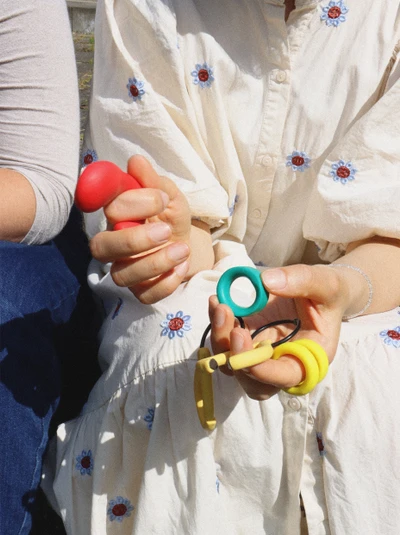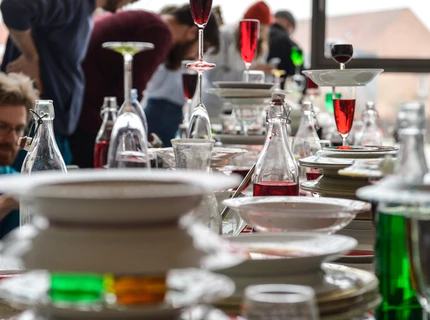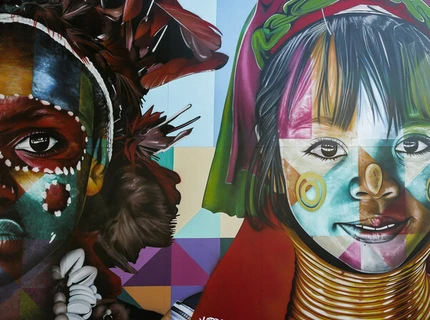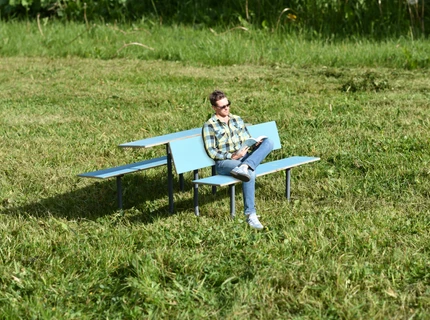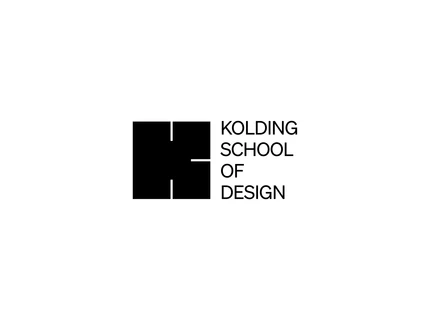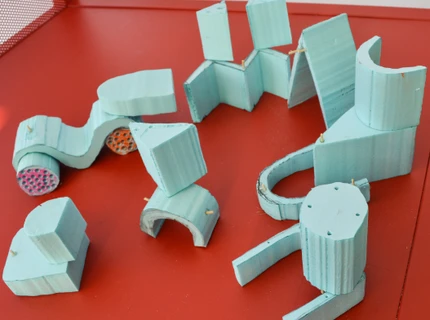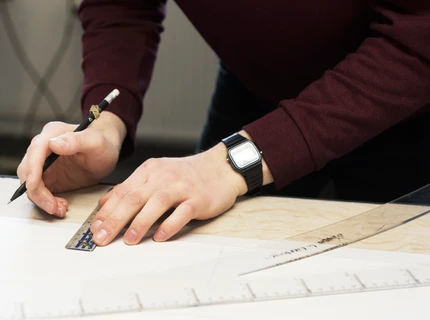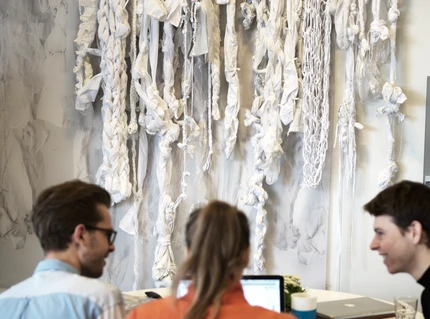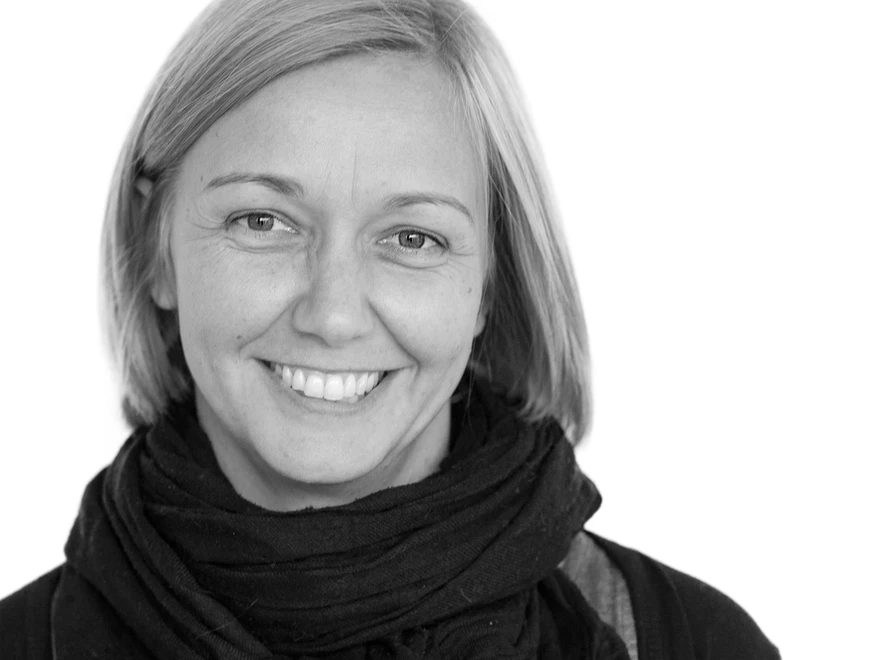Design for Play (MA)
Why should I choose Design for Play?
You will become a frontrunner for new ways of designing in a society and job market that is increasingly requiring more and better creative competences, and where more than half the jobs needed in the future are not even invented yet.
The programme was established with the LEGO Foundation and the LEGO Group and is the world’s first, exclusive two-year international Master’s Degree programme within Design for Play.
Students from all of the school's own bachelor programmes as well as students from other disciplines will be accepted provided they meet the admission criteria by showing design understanding and technical/creative design skills equivalent to the level of a bachelor’s degree in design.
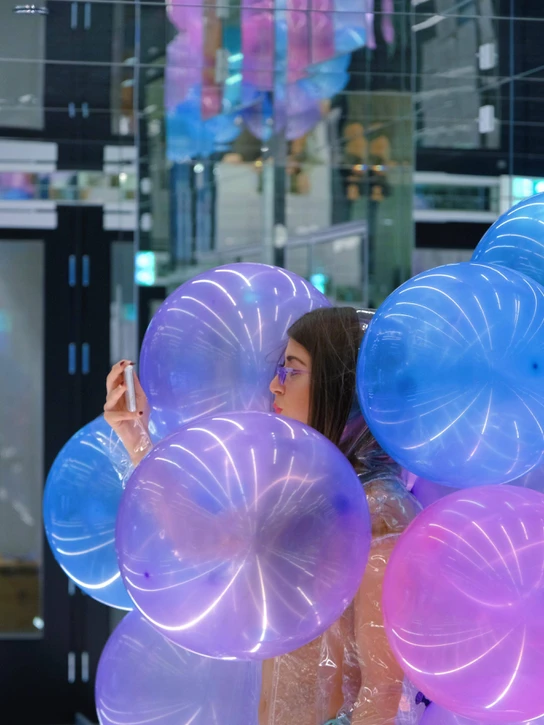
Why is Design for Play important?
Play supports creativity and innovation, and therefore at Kolding School of Design we design play, we design for play and we design with play.
Play helps release human potentials, which contributes to the artistic dimensions of design. Along with technical skills and user and business understanding this makes us able to produce better solutions and meaningful products, services and systems.
At Kolding School of Design we design through play, and we design possibilities for people and communities to unfold.

What will I learn?
You will experience play as a motivational factor in design and development processes and get to design meaningful play experiences for people of all ages.
The programme enables you to build on your basic design discipline and design for play using current and relevant knowledge and various tools, methods and approaches.
You will have the opportunity to learn to:
- analyse, identify and design specific play experiences
- use play to support development, learning and experiences
- design relevant play as seen from a children’s and user perspective
- be aware of different play cultures
- develop and intervene in processes using a playful approach
- work with play systematically and through research and theory
You will learn to work in cross-disciplinary groups and on various levels with external partners, companies, organisations and the public sector to ensure a high degree of relevance.
The Design for Play curriculum is qualified with the help of leading international institutions such as Stanford, MIT and Cambridge.
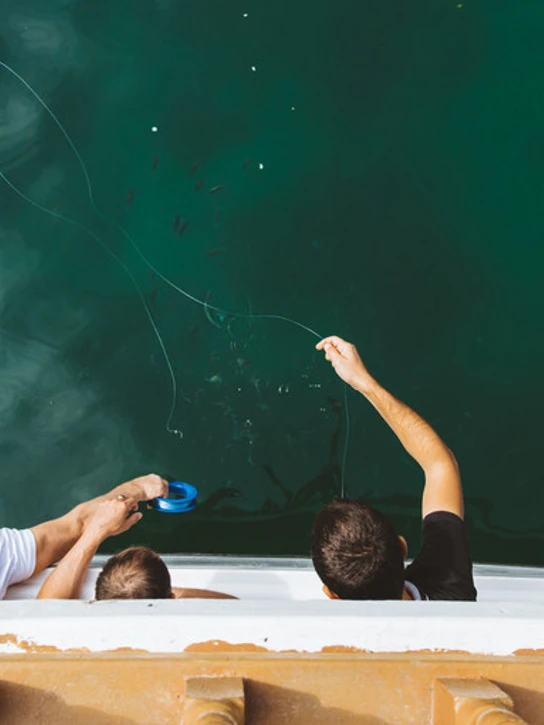
How will I learn?
The instruction comprises class teaching, lectures, group work, workshop instruction, supervision and project work. You will learn alongside fellow students of different design backgrounds, languages, cultures and nationalities, which reflects the world you will engage with after your studies.
The courses are completed in close relation with organisations and companies, including The LEGO Foundation and The LEGO Group, in various forms of collaborations.
The instruction focuses on play, development, engagement and co-creation with different users and stakeholders to support the playful human being throughout the process as well as the final design.
The programme is one of a kind. It is based on Scandinavian design and an international outlook. We regularly invite national and international researchers, play heroes and design practitioners in to teach to make sure the programme is relevant and diverse.
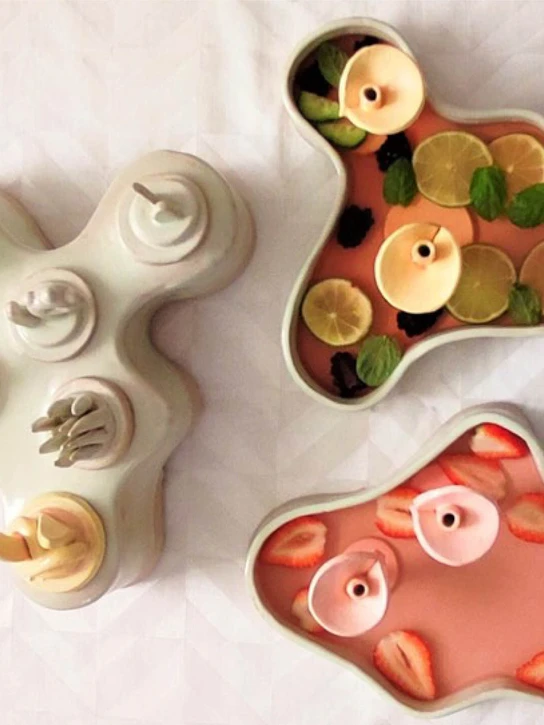
Practicing Play Together
Courses you will meet at Design for Play
What jobs can I get?
You can design children's products, for instance at LEGO, HABA, Kompan, Ikea and Toca Boca.
Or you can design playful experiences in museums, experience parks, schools and hospitals.
You will be able to contribute with playful approaches in design companies and design agencies at product, process and strategy levels.
Your experiences with play for all ages will make you a suited ambassador for play within NGOs such as The LEGO Foundation, UNICEF, etc.
The programme also qualifies you to pursue an academic career in universities and design schools, and to become a facilitator, teacher or communicator in design and play.
